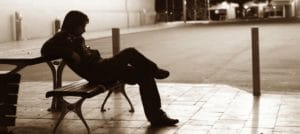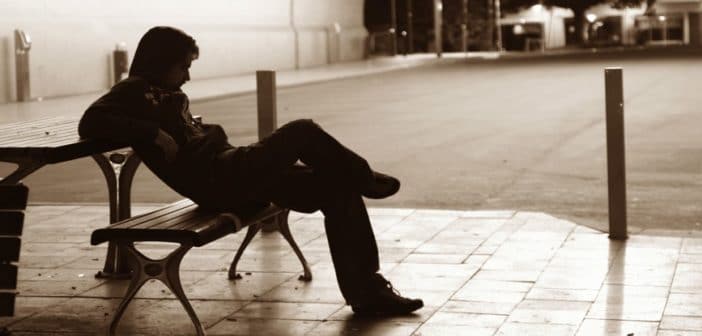 When I was younger and my mom made me clean my room, it was usually less of a cleaning session than me falling down a rabbit hole with all the things I’d squirreled away: newspaper clippings, old magazines and handwritten notes. I’d thumb through photographs and wonder what happened to the faces in them—all the kids I knew before we moved, changing school districts. Now that I’m sober, I do this with Facebook photo galleries. I find myself scrolling through online scrapbooks of past parties, concert selfies and group photos I don’t remember being a part of. I can spend a solid hour clicking on photo after photo after photo. Facebook is very often a broken hall of mirrors like that; reflecting days and people that have long since evaporated from memory. But more than anything, I’m left with the sense that I don’t really know where all of my friends have gone.
When I was younger and my mom made me clean my room, it was usually less of a cleaning session than me falling down a rabbit hole with all the things I’d squirreled away: newspaper clippings, old magazines and handwritten notes. I’d thumb through photographs and wonder what happened to the faces in them—all the kids I knew before we moved, changing school districts. Now that I’m sober, I do this with Facebook photo galleries. I find myself scrolling through online scrapbooks of past parties, concert selfies and group photos I don’t remember being a part of. I can spend a solid hour clicking on photo after photo after photo. Facebook is very often a broken hall of mirrors like that; reflecting days and people that have long since evaporated from memory. But more than anything, I’m left with the sense that I don’t really know where all of my friends have gone.
One of my greatest skills as an alcoholic wasn’t actually drinking—it was finding other people who drank like I did. I could spot them a mile away. They seemed to give off a frequency that only I picked up. At work in a conference room. At one of my kids’ school functions. During backyard barbecues with neighbors. Didn’t matter. Just as liars know other liars, I could always find the people I could truly be myself with.
From a young age, I was a big Star Trek fan, but I still collected baseball and basketball cards—as if this would suddenly kick-start an interest in the sports I never played or watched. (It never did.) I memorized players and stats and teams for no reason. I collected people in the same way. I surrounded myself with people I had zero in common with—beyond drinking. I don’t know how many times I have been slumped over a bar, pretending to be interested in their lives, gripes about work, arguments with their wives, their favorite sports teams’ successes and failures. What was important was our shared love of beer, booze and being drunk. It bound me to other people in the same way it excused my worst behavior.
When I got sober, my friends didn’t vanish overnight. No, they made sure to stick around and study me, like I was a zoo curiosity. It simply didn’t compute with most of the people in my orbit. I had announced that I was giving up drinking a few times before—which is to say I’d torn it up pretty hard over a weekend and loudly announced to everyone that I was done drinking. Predictably, I’d be back at it within the week. So maybe no one took me seriously.
I was still getting invited to happy hours and parties where the invitations said “Bring your drinking shoes.” I showed off my 30-day coin to a drinking buddy who actually refused to hold it. I think he was only half-kidding when he said it would burn him. I don’t think my friends knew quite what to do with me. It was like I was the second-act plot twist no one saw coming.
You’re not serious about this not-drinking thing, right? This is you we’re talking about here.
Yes, me. The same guy who got bombed and drove his Jeep Wrangler through the yard of a random apartment complex just to get a wide-eyed, holy-shit laugh.
But then, before I knew it, they were gone. Almost every single one of my friends. It didn’t happen with a nuclear-bomb flash, either. It just happened. No more invites. No more tags in Facebook posts. No more text messages. Radio silence. I thought as a sober person, I was going to have to have awkward conversations with people or surgically remove friends from my life. Nope.
As a sober person, it’s not like you’re suddenly radioactive to your drinking buddies—it’s more like you’ve been diagnosed with a rare cancer. Everyone pities you for a bit and gives you sad, heartfelt looks. They tell you how strong you are. They offer you some encouraging words—but that’s where it ends. They disappear. To my friends, I was one of those doomed, red-shirted Enterprise crew members who gets infected with an alien spore while on an away mission. There was no hope for me. When I wasn’t looking, all my crew mates were quietly beaming themselves back to the ship. I was stranded on a barren, drinkless moon.
This is the part of the movie where I’m supposed to say that these friends never mattered in the first place, or that we weren’t really friends to begin with. That’s not true. In those moments and during that time, those relationships were very real. Even when I was pretending to be interested as someone went on about what kind of season Ohio State was going to have, when all I cared about was the drinking, the relationship still existed. It had weight, even if it was founded on vapor. AA rooms and treatment teach you how to live independently, but they don’t prepare you to be abandoned. So, when I look at Facebook galleries of moments half-remembered, I’m conflicted. I’m sad that I’m no longer connected to those people, but I’m overjoyed that the memories I make now are strong and indelible.
The relationships I’ve forged in sobriety have a depth that goes beyond the exercise of huddling around drinks in some cookie-cutter sports bar. We have a shared understanding of what hell looks like. Sobriety has also taught me to be clear-headed about the relationships I still have and value. Not everyone vanished (just maybe, like, 93%). After everything I put everyone through, it’s a miracle anyone was left. Every once in a while I’ll get a Facebook message from a former drinking buddy, like a Red October ping from the dark, checking in to see how I’m doing and if all this sobriety jazz is real.
The connections I’ve made in recovery are as lasting as they are meaningful. I’m not spending time nurturing all the grass fires of acquaintances. That’s exhausting, empty work. I stay focused on the relationships I’m present for. It’s not worth mourning the loss of my drinking friends, but it’s worth remembering that my friends are only as significant as I allow them to be. After all, it’s not like all of my friends suddenly went someplace different.
I did.
Sponsored DISCLAIMER: This is a paid advertisement for California Behavioral Health, LLC, a CA licensed substance abuse treatment provider and not a service provided by The Fix. Calls to this number are answered by CBH, free and without obligation to the consumer. No one who answers the call receives a fee based upon the consumer’s choice to enter treatment. For additional info on other treatment providers and options visit www.samhsa.gov.




